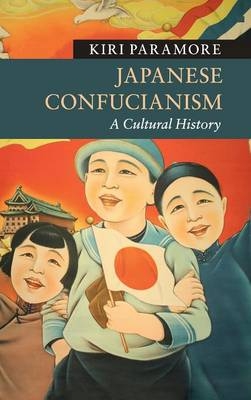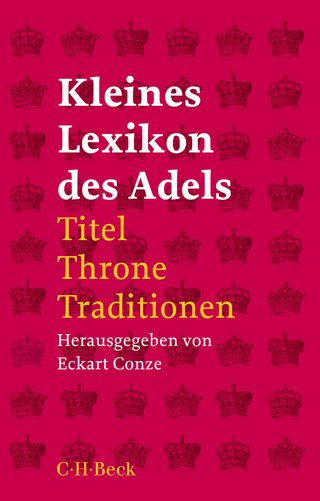
Japanese Confucianism
Cambridge University Press (Verlag)
978-1-107-05865-1 (ISBN)
For more than 1500 years, Confucianism has played a major role in shaping Japan's history - from the formation of the first Japanese states during the first millennium AD, to Japan's modernization in the nineteenth century, to World War II and its still unresolved legacies across East Asia today. In an illuminating and provocative new study, Kiri Paramore analyses the dynamic history of Japanese Confucianism, revealing its many cultural manifestations, as religion and as a political tool, as social capital and public discourse, as well as its role in international relations and statecraft. The book demonstrates the processes through which Confucianism was historically linked to other phenomenon, such as the rise of modern science and East Asian liberalism. In doing so, it offers new perspectives on the sociology of Confucianism and its impact on society, culture and politics across East Asia, past and present.
Kiri Paramore is University Lecturer in Japanese History at Leiden University. He studied Asian History at the Australian National University (BAS Hons, 1999) and worked for the Australian Department of Foreign Affairs and Trade before moving to Japan to study Area Studies and Intellectual History at the University of Tokyo (MA 2003, PhD 2006). He has been awarded research fellowships from the Institute of East Asian Studies at the University of California, Berkeley, and the Institute of Chinese Literature and Philosophy at Academia Sinica, Taipei, where he was Visiting Research Professor from 2011–12. His first book was Ideology and Christianity in Japan (2009).
Introduction; 1. Confucianism as cultural capital: mid-first millennium AD – late sixteenth century AD; 2. Confucianism as religion, 1580s–1720s; 3. Confucianism as public sphere, 1720s–1868; 4. Confucianism as knowledge, 1400s–1800s; 5. Confucianism as liberalism, 1850s–1890s; 6. Confucianism as fascism, 1868–1945; 7. Confucianism as taboo, 1945–2015; Bibliography; Index.
| Erscheinungsdatum | 15.04.2016 |
|---|---|
| Reihe/Serie | New Approaches to Asian History |
| Zusatzinfo | 1 Tables, black and white; 6 Maps; 6 Halftones, black and white |
| Verlagsort | Cambridge |
| Sprache | englisch |
| Maße | 156 x 235 mm |
| Gewicht | 470 g |
| Themenwelt | Sachbuch/Ratgeber ► Geschichte / Politik ► Allgemeines / Lexika |
| Geisteswissenschaften ► Geschichte ► Regional- / Ländergeschichte | |
| Geschichte ► Teilgebiete der Geschichte ► Kulturgeschichte | |
| Geisteswissenschaften ► Religion / Theologie ► Weitere Religionen | |
| Sozialwissenschaften ► Soziologie | |
| ISBN-10 | 1-107-05865-1 / 1107058651 |
| ISBN-13 | 978-1-107-05865-1 / 9781107058651 |
| Zustand | Neuware |
| Haben Sie eine Frage zum Produkt? |
aus dem Bereich


